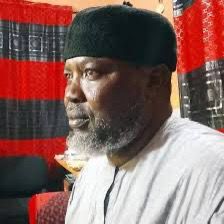Building Schools, Building Nations: The leadership Africa needs, by Dr Tukur Madu Yemi
Why Traoré’s vision should inspire Nigeria and the rest of Africa
Reports, though not yet fully confirmed, suggest that Burkina Faso’s young leader, Captain Ibrahim Traoré, declined an offer from Saudi Arabia to build 200 mosques, requesting instead that such resources be directed toward schools, hospitals, and jobs. Whether fact or anecdote, the story has spread widely across Africa and beyond. Its appeal is obvious: it illustrates the type of leadership Africans have long craved that places human welfare and development above symbolic gestures.
Across the continent, and most especially in Nigeria, foreign donors and domestic governments have too often chosen prestige projects over urgent social needs. While mosques, cathedrals, monuments, and politically motivated structures rise, citizens remain trapped in poor healthcare systems, neglected schools, and deep unemployment. Within this context, the notion that Traoré would prefer 200 schools over 200 mosques resonates profoundly. It forces Africans to ask: do our leaders truly serve the people, or are they more concerned with optics and appearances?
READ ALSO: The 2009 ASUU Agreement: A mirror of government failure, by Dr. Tukur Madu Yemi
This is where Traoré’s reported decision stands out against the pattern of contemporary African leadership. Too frequently, projects funded by external partners provide media attention but little lasting value. Yet history shows there are other possibilities. Rwanda, under Paul Kagame, emphasised infrastructure, education, and technology. Tanzania’s late President John Magufuli became notable for his austerity and insistence on accountability. Both leaders, despite flaws, demonstrated that governance focused on substance can outlive empty showmanship. Within this frame, the idea of choosing schools and hospitals over additional mosques becomes more than a symbolic act, it represents the leadership model Africa urgently needs.
The message carries particular weight for Nigeria. A nation blessed with enormous human and natural resources continues to stumble due to misplaced priorities and poor governance. Billions are spent on vanity projects, unsustainable subsidies, and political patronage, while sectors such as education, healthcare, and job creation remain underfunded. If redirected, these same resources could transform hospitals, expand access to quality schools, and generate employment opportunities for millions. The lesson is clear: both international partnerships and domestic spending must be realigned to confront structural problems such as poverty, insecurity, and unemployment, instead of fuelling elite-driven projects that deliver little value to citizens.
READ ALSO: From Promise to Punishment: Nigerians under Tinubu’s tax reforms, by Dr Tukur Madu Yemi
Yet, such a model is not without risks. In a predominantly Muslim country like Burkina Faso, rejecting mosque projects could unsettle religious leaders. Turning down an offer from Saudi Arabia might also complicate diplomatic ties. And most importantly, words must be backed by action: schools must be built, hospitals equipped, and jobs created. Otherwise, a strong symbolic gesture risks being dismissed as rhetoric.
Still, the lesson remains compelling and universal. Africa and Nigeria in particular do not need more monuments designed to impress, while ordinary people languish without essential services. What the continent requires is leadership centred on people, where education, healthcare, and human dignity form the foundation of governance.
Whether one sees it as a literal truth or an allegory, the story of Traoré’s refusal of 200 mosques in favour of 200 schools serves as a mirror for African leaders. It echoes the desires of ordinary citizens: leadership that values substance over spectacle, and that directs resources toward programmes that change lives in real terms. Nigerians, Africans, and the wider global community should take this as a lesson worth reflection.
If leaders across the continent choose this path, privileging development over vanity, and sovereignty over dependency, Africa will not merely endure its current challenges but will advance toward a future marked by dignity, stability, and shared prosperity.
Dr Tukur Madu Yemi writes from the
Federal University of Kashere Gombe.
alhajitukur2017@gmail.com
08066289200/09024252525
Follow the Neptune Prime channel on WhatsApp:
Do you have breaking news, interview request, opinion, suggestion, or want your event covered? Email us at neptuneprime2233@gmail.com





